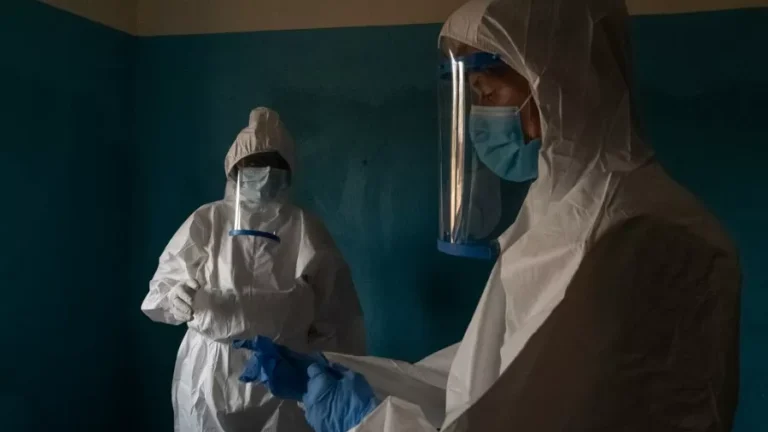
The Democratic Republic of Congo (DRC) is facing a concerning development in its ongoing mpox outbreak. Scientists have identified a new form of the virus in a mining town, raising concerns about its potential for easier transmission among humans.
Since January 1, 2024, the DRC has reported a staggering increase in suspected mpox cases, with numbers more than tripling compared to the same period last year.
This alarming trend, representing a rise of over 200%, led the World Health Organization (WHO) to declare a national health emergency.
A new study focusing on patients hospitalized in Kamituga, eastern Congo, suggests a crucial change in the virus itself. Analysis points towards recent genetic mutations in mpox, potentially linked to its sustained transmission within human populations.
Notably, Kamituga has limited contact with wild animals, previously thought to be the primary source of the disease.
“We’re dealing with a new phase of mpox,” warns Dr. Placide Mbala-Kingebeni, the study’s lead researcher. He emphasizes the urgency of publishing the findings to raise awareness. Dr. Mbala-Kingebeni heads a genetics research lab at Congo’s National Institute of Biomedical Research.
The mutated mpox appears to present milder symptoms, with lesions primarily concentrated on the genitals. This shift makes diagnosis more difficult, as previous outbreaks typically exhibited lesions on the chest, hands, and feet. However, there seems to be a potential silver lining with a seemingly lower mortality rate associated with this new form.
The WHO acknowledges the potential need for a revised testing strategy to account for these mutations. Dr. Mbala-Kingebeni highlights the crucial role of individual vigilance: “Untested patients pose a significant risk of silent transmission.”
The study reveals that sexual transmission is the primary mode of infection, with a significant portion of cases occurring among sex workers. This finding aligns with the global mpox emergency of 2022, where scientists confirmed sexual transmission as a major factor, particularly amongst gay and bisexual men.
There are two main strains of mpox, known as clades. Clade 1, historically more severe with a 10% fatality rate, appears to be the culprit behind the new mutations identified in Kamituga. This region also has a highly mobile population, raising concerns about wider geographical spread.
Experts like Dr. Boghuma Titanji, an infectious diseases specialist, express concern about the mutations. She suggests the virus might be adapting for more efficient human-to-human transmission, potentially leading to larger outbreaks.
While Western nations successfully controlled their mpox outbreaks with the help of vaccines and treatments, Congo faces a stark shortage. The country’s health ministry has authorized the use of vaccines in high-risk areas, but obtaining them remains a challenge. Efforts are underway to secure donations from countries like Japan.
Dr. Dimie Ogoina, an mpox expert, draws a parallel between the current situation and the early stages of the HIV epidemic. He highlights the concerning overlap in the prevalence among sex workers and the potential stigma associated with seeking treatment.
The situation in Congo underscores the urgent need for global support. As WHO emergencies chief Dr. Michael Ryan stated recently, “there has not been a single donor dollar invested” despite the ongoing spread of mpox in Africa and other regions.
